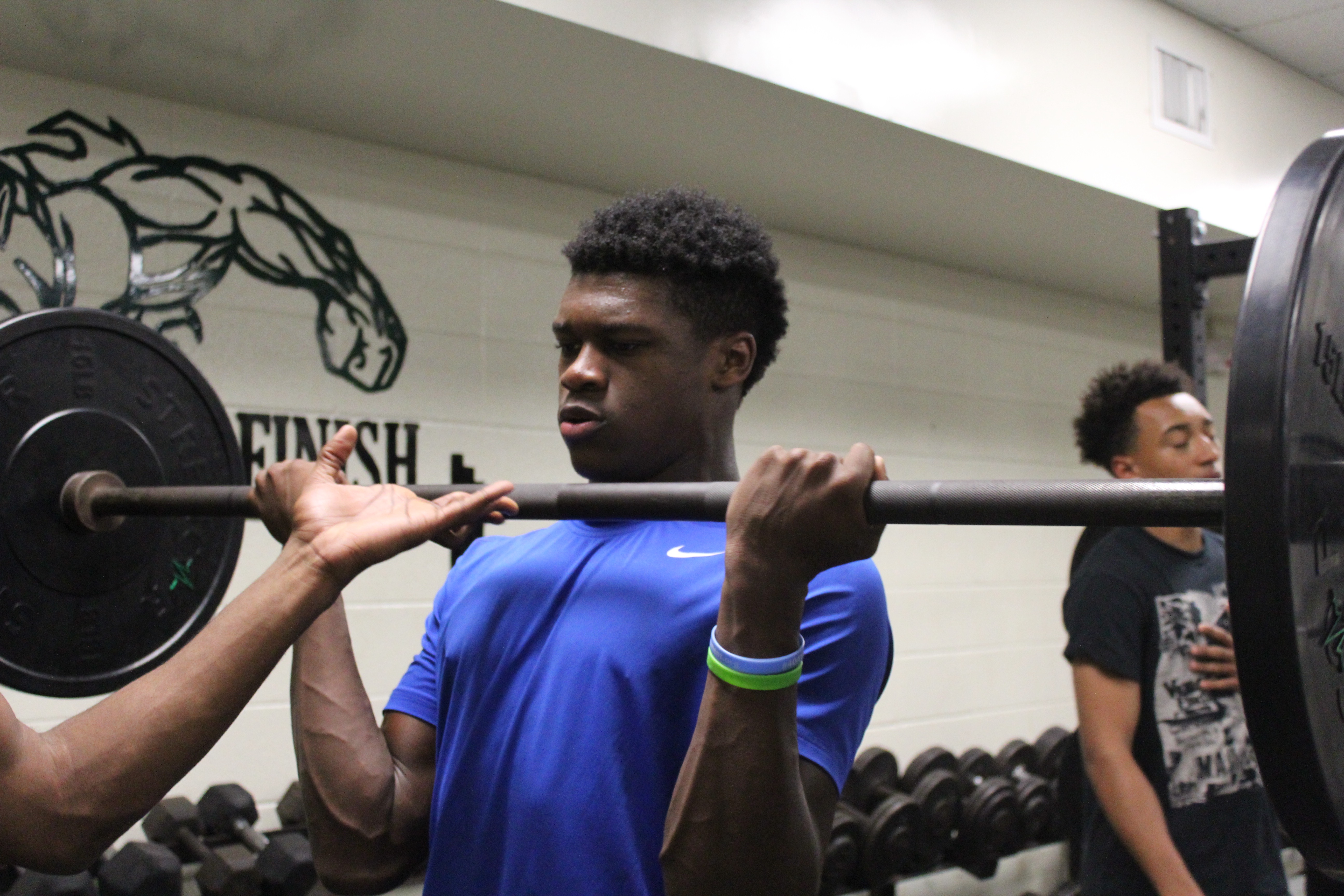Whether sprinting around the track, struggling out of a push up, hoisting weights above your head, pounding up and down the bleachers or gasping out of a stretch, preseason workouts can be some of the most grueling and difficult parts of a student-athlete’s career. However, because of today’s hyper-competitive high school athletic culture, almost every school sport has a non-mandatory period of preseason training to help their athletes and team gain a competitive advantage.
In tandem with this, over the past several decades high school athletics have seen a significant increase in importance. Participation in athletics has risen steadily for 22 consecutive years, according to data from usnews.com. This has resulted in 55.5 percent of high school students playing a sport for the 2012-2013 season, a dramatic increase from the 36 percent of high school students who did so for the 2000-2001 season.
Because of the rising popularity of off-season programs, some student-athletes can feel forced into participating in optional preseason programs because of the stress they feel from their teammates and coaches. Preseason workout schedules often last weeks or even months at a time and many student-athletes try to maintain a balance between their education, job, athletics and personal life.
Sophomore soccer player Juliana Hubbard feels that peer pressure is a definite burden on student-athletes surrounding preseason workouts.
“I always feel pressured to attend preseason workouts, but I usually just ignore it because they are an optional thing,” Hubbard said. “Only the most dedicated athletes go to every single preseason workout.”
Junior soccer player Macie Marsh said if you are not there, you can feel as if you’re being left behind.
“I definitely feel pressure, you know?” Marsh said. “Everyone else is getting better and working on their physical abilities, and I’m just sitting there being lazy.”
Sophomore track and field athlete Chris Ocariza believes that athletes owe it to themselves and to their teammates to attend preseason workouts in order to make themselves into the best athletes they can be.
“As an athlete, I want to get better each and every day, so as athletes it’s our responsibility to go to these practices, even though they are optional,” Ocariza said.
Despite the voluntary nature of preseason workouts, the consensus among coaches and students is that they are fundamental to achieving and maintaining a competitive advantage over teammates and opposing teams alike.
“People who take advantage of preseason workouts are going to get better, and people who don’t might suffer the consequences of not being as good,” Marsh said.
Girls’ basketball coach Cameron Vernon agrees, believing that preseason workouts are necessary to success in athletics.
“Would you not study before a test?” Vernon said. “When you have to go out and compete, the game is your test, and you either pass or fail. Have I given spots to kids who have attended preseason workouts just because they put in the work? Absolutely.”
Even though preseason workouts are both demanding and difficult, both coaches and athletes agree that they are vital to the team’s success. For student-athletes who are seeking to compete and achieve at the highest level of high school sports, preseason workouts may be one of the keys to unlocking their capabilities and skills.
– By Adam Rimolt



